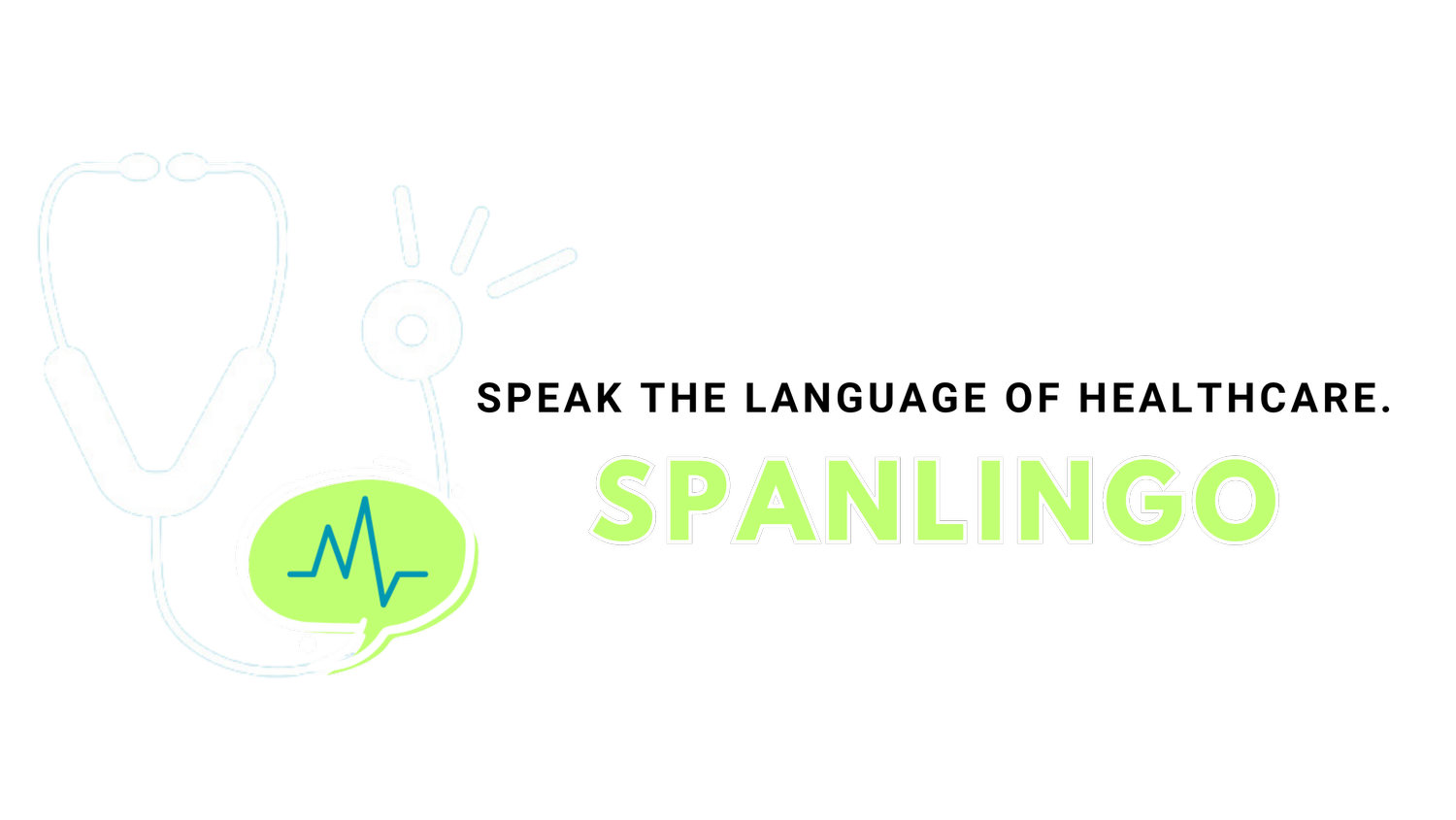The Importance of Spanish Proficiency in Healthcare: Enhancing Patient Care
In today's increasingly diverse healthcare landscape, effective communication is paramount. As the United States continues to see a growing Spanish-speaking population, medical professionals who can bridge language gaps are in high demand. In this blog post, we'll delve into why it's crucial for healthcare providers to learn Spanish, especially in diverse communities, and how doing so can significantly improve patient care.
At Spanlingo, we understand the pivotal role language plays in healthcare, which is why our specialized Spanish courses are designed to empower medical professionals with the linguistic skills they need to excel in their careers.
1. Breaking Down Language Barriers
The most immediate and obvious benefit of Spanish proficiency in healthcare is the ability to communicate directly with Spanish-speaking patients. Removing language barriers can lead to:
Enhanced Patient Trust: Patients feel more comfortable and confident when they can communicate their concerns and understand their healthcare providers.
Accurate Medical History: Gathering accurate medical histories becomes easier when patients can articulate their symptoms and experiences in their native language.
Reduced Miscommunication: Clear communication reduces the likelihood of misunderstandings, prescription errors, and unnecessary tests, ultimately improving patient outcomes.
2. Cultural Competence
Language and culture are deeply intertwined. Learning Spanish goes beyond just words and phrases; it involves understanding the cultural nuances of Spanish-speaking patients. When healthcare professionals take the time to learn the language, they are also better equipped to provide culturally sensitive care. This includes:
Respecting Beliefs and Traditions: Being aware of cultural differences and respecting patients' beliefs and traditions fosters trust and cooperation.
Effective Collaboration: Spanish-speaking patients often rely on extended family networks for decision-making. Healthcare professionals who understand these dynamics can collaborate more effectively.
3. Access to a Broader Patient Base
By acquiring Spanish language skills, healthcare professionals can expand their reach and impact. This is particularly advantageous for private practices and clinics aiming to serve a wider community. Learning Spanish can lead to:
Increased Patient Base: Being able to cater to Spanish-speaking patients means a broader and more diverse patient base, which can translate into business growth.
Community Engagement: Becoming an active and respected part of the community you serve can have positive ripple effects on your healthcare practice.
4. Career Advancement
Proficiency in Spanish can open up new career opportunities and advancement within the healthcare field. Many employers seek bilingual candidates, and demonstrating Spanish proficiency can be a valuable asset on your resume.
In today's multicultural society, Spanish proficiency in healthcare is not merely a desirable skill but a necessity. It enhances patient care, fosters trust, and opens doors to new career opportunities. At Spanlingo, we are committed to helping medical professionals gain the language skills they need to excel in their roles and make a positive impact on their patients' lives. Join us on the journey towards better patient care through Spanish proficiency.
Ready to take the first step? Explore our specialized Spanish courses at Spanlingo and equip yourself with the language skills that can transform your healthcare career. Your patients will thank you, and your career will flourish.
